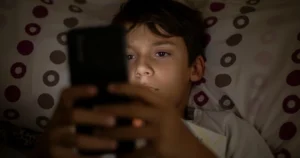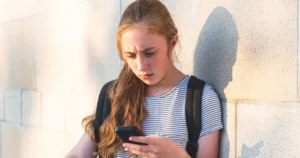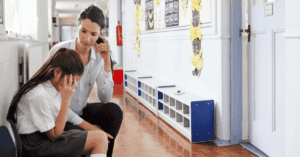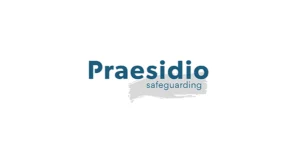Protect children from county lines exploitation
Vulnerable children are at greater risk for exploitation
A child vulnerable to other types of exploitation is also at greater target for organised crime gangs (OCG). Knowing the signs can help protect children from county lines.
Safeguarding agency, Praesidio, have created the below guidance to help parents, carers and professionals understand the signs of county lines exploitation to take action against it.
Learn the signs of county lines
Children engaging in county lines may exhibit signs similar to other types of grooming. Learn what these signs are below to help protect children from county lines.
 Close video
Close video
Some of the signs that a child is exploited by county lines include:
- Absent from school or missing from home
- Disengaged from their usual friendship groups
- Have new friends (especially older or unknown)
- Have a new phone or multiple phones
- Have new clothes or unexplained money
- Spend more time than usual online or taking calls
- Become secretive
Some children might also adopt a new style of dress or speech as they imitate other gang members. More obvious signs involve carrying drugs or items associated with drug dealing or drug use on behalf of the OCG. This may also include money or weapons.
Additionally, children might have unexplained injuries – some of which might resemble self-harm – or appear scared, particularly during contact with the gang. They might have tattoos or deliberate injuries intended to identify them as part of a gang. Likewise, they might talk about travelling to new places, especially overnight or for longer periods.
How to protect children from county lines
Parents and carers cannot supervise their children at all times and restricting access to the internet is unrealistic. Children rely on digital devices for school-based learning as well as their personal and social lives, so it could be counterproductive to remove devices.
Therefore, there parents and carers can keep their children safe in other ways:
A preferable approach to protecting children from county lines is to equip them with the knowledge to keep themselves safe online. This must start with an early understanding of healthy friendships and relationships in the real world and online.
Provide additional protection by recognising and understanding what is important to your child. Then, offering support, guidance and advice.
Providing an open, trusting and non-critical environment in which children can ask about anything reduces the need for children to seek answers online.
If children are supported appropriately in parts of their lives that create the potential for vulnerability, they are less likely to seek help from unsuitable sources or behave online in ways that create the risk of exploitation.
You can apply parental controls on devices used by younger children to block unwanted websites, platforms or applications. These settings can also prevent children from accessing home WiFi outside of agreed times.
However, older children might find other ways of accessing the web, so parental controls must be used alongside regular conversations.
Further reading
Learn more about the signs of county lines and the actions you can take to protect children from county lines.
More on online grooming
Featured online grooming articles
 Q&A
Q&A
What can parents learn from the ‘Adolescence’ series on Netflix?
Experts share tips to help parents navigate discussions about 'Adolescence' on Netflix.
 Research
Research
Teen girls’ experiences of harm online
Our latest Digital Wellbeing Index report shows that teen girls experience significantly more negative outcomes online than other children.
 Expert opinion
Expert opinion
How to counter online hate and extremism with young people
Hate and Extremism Analyst, Hannah Rose, shares insight into how young people might get involved online. Learn how to counter online hate.
 Research
Research
Our Greater Manchester pilot project: Introducing Bee Smart
We are thrilled to have received funding from the Government’s Media Literacy Taskforce Fund for the Bee Smart project.
 Q&A
Q&A
How teachers tackle online child-on-child abuse in schools
Expert and teacher Dr Tamasine Preece discusses the struggles teachers face when it comes to online child-on-child abuse.


